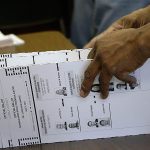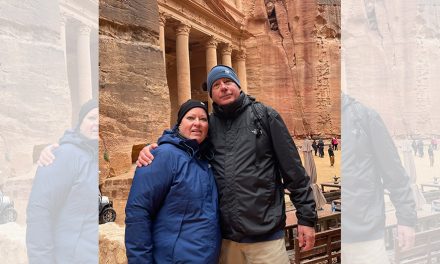
50 Years Ago: Interior boss talks of ending trust relationship with tribes
In the fall of 1969, leaders of tribes in the country were extremely worried that the Nixon administration would accept suggestions to terminate the federal government’s trust authority over Indian nations.
There was serious talk by some high-ranking leaders in the government that it was time to sever the connection between the tribes and the federal government and let the tribe’s sink or swim on their own. The leader of this movement was Walter Hickel, secretary of the Interior Department, who spoke for many Republicans who believed that the federal government was spending too much money for services on Indian reservations.
Over the past month, Hickel was quoted as saying that the federal government had been over protecting Indian nations and by doing so was keeping the tribe’s and the Indian people dependent on handouts. His speeches attracted the interest of some Republicans in Congress who said they were in favor of sitting down with each individual tribe and come up with a figure as a final payment by the federal government that would end their relationship once and for all.
As you could imagine, this did not go over well with Indian leaders. Jesse Six Killer, an officer with a group called American Indians United, became somewhat of a spokesman for all of the tribes opposed to the idea, saying the federal government has kept the tribes dependent on federal oversight and funds because federal leaders have always viewed the Indian people as a “commodity” and not as sovereign nations.
The Navajo Times during this period printed several stories about the issue and tried without success to get a statement from the tribe’s chairman, Raymond Nakai. He issued a brief statement, which, in the end, didn’t shed any light on his views on the issue. Dick Hardwick, the editor of the paper, said he was preparing to write a strong editorial about the refusal of Nakai and a few leaders of other tribes who wanted to stay out of the controversy, but by that time Nixon had publicly stated he was as opposed to the idea so it became a moot point.
By the end of 1969, according to Hardwick, it was getting harder and harder for the Times and the off-reservation press to get Nakai to comment on practically any issue because he did not want to offend anyone and lose their vote in the upcoming election.
Publicly, Nakai’s biggest challenger at this point in the election was Sam Billison, who ran and lost in the past two elections. Because of this, Nakai wasn’t worried about defeating Billison. In public, Nakai didn’t seem to be worried about anyone. But Perry Allen, who had a long political career in the 1960s and 1970s, went into rants privately about the possibility of Peter MacDonald running for office. MacDonald was head of the Office of Navajo Economic Opportunity and had been getting a lot of positive press in both the Gallup and Farmington papers as well as the Navajo Times.
Nakai wasn’t too worried about the off-reservation papers since neither circulated much on the reservation at that time. The Navajo Times, however, was a different matter and he claimed to his aides that MacDonald had had three times as many articles printed in the Times than he had.
MacDonald hadn’t officially announced at this point in the election whether he would be a candidate but Nakai was certain that if he did run, the area papers would support him with even more favorable articles. In some ways, he was even more paranoid about the press than Nixon was and Hardwick would say that this would create a lot of problems for the Times and his staff as they covered they covered the election in 1970. As for that statement that the Times had three times as many articles about MacDonald in 1969 than Nakai, that may be true but it would be misleading.
While tribal leaders after Nakai would have press offices that would put out several press releases a week, Nakai didn’t haven any one person specifically charged with that function so very few press releases came out of his office. MacDonald, on the other hand, was releasing press reports all the time.
Not only did he feel that publicity helped spread the word about what his agency was doing, he obviously enjoyed getting his name in the paper. He enjoyed talking to the press and never tried to duck the press when reporters came to him with questions on a controversial issue. Nakai made it clear to reporters that he didn’t want to speak to them because he believed that they were all out to get him. Howard Graves, a writer for the Associated Press, would interview Nakai several times in the late 60s.
He said that Nakai hated every one of the stories he wrote, even though they were generally very positive about him and the way he was leading the tribe. According to Graves, Nakai would go through the article line by line to find a word or a sentence that he said was a misquote or taken out of context. After repeatedly being accused of misquoting Nakai, Graves said he made it a practice to tape record every interview.
But this didn’t solve the problem because Nakai continued to claim he was misquoted, even when Graves played his recording to prove he was not misquoted. And finally, this issue of the Times included details of an ancient sweat bath that Hardwick found in the Times archives. This is printed exactly as it was first printed almost a century ago. “Pot of boiling wata with evergreen leaves put in it to make it hotta. (Only cedar is evergreen leaves). Sit over the steaming wata. Sweat for about twenty or thirty minutes. Wrap up the blanket vera quick for one hour or more. This is vera good remedy.”








 Highway 264,
Highway 264, I-40, WB @ Winslow
I-40, WB @ Winslow